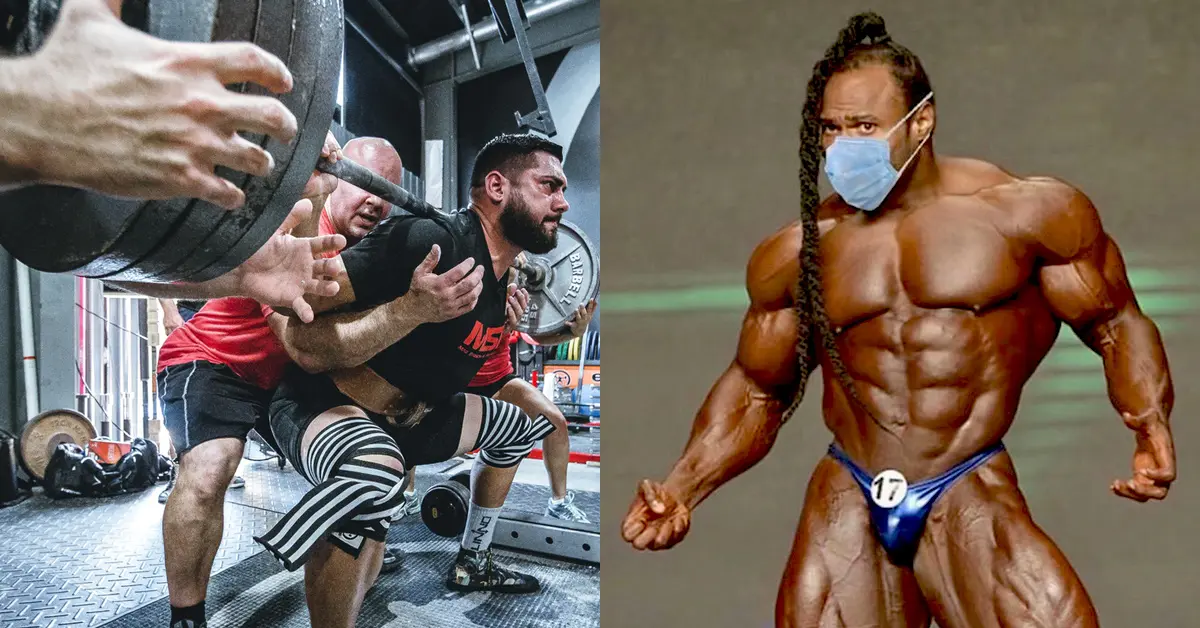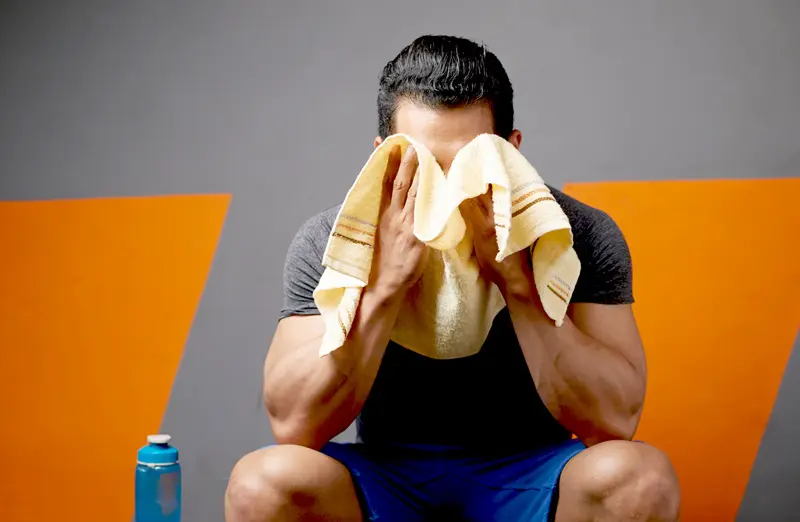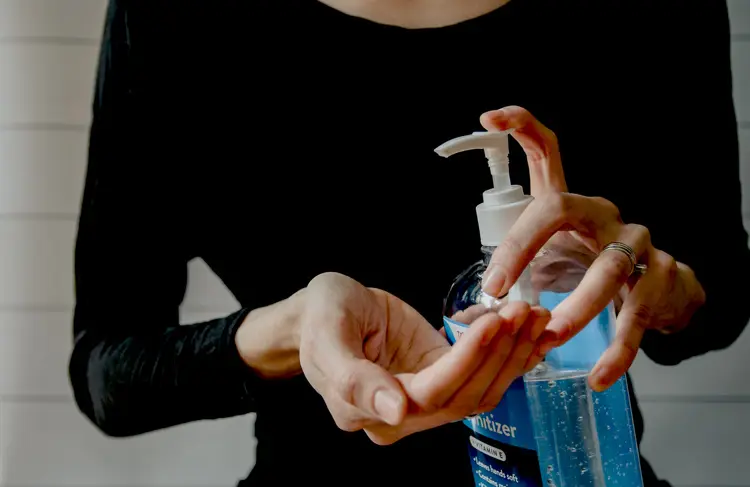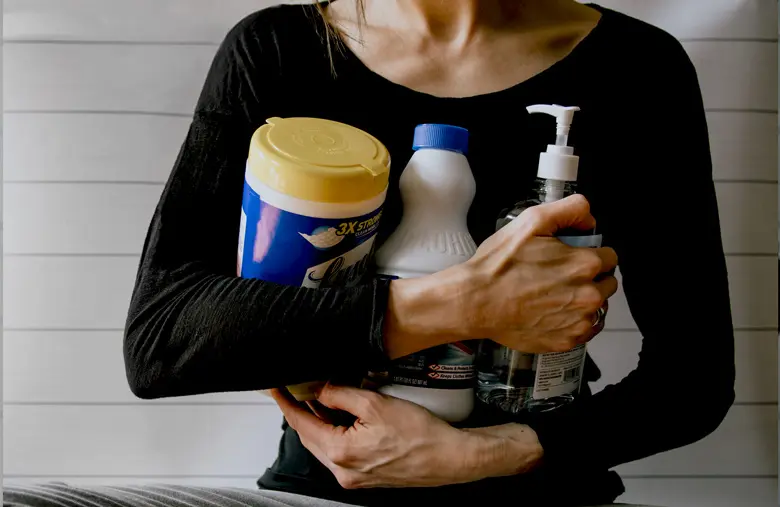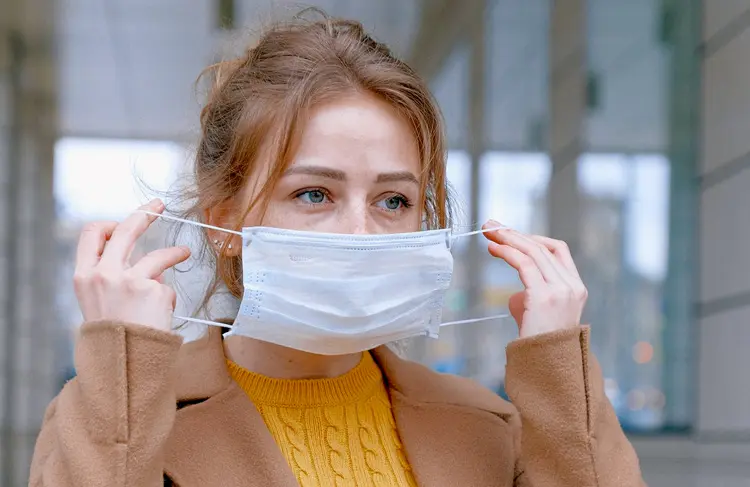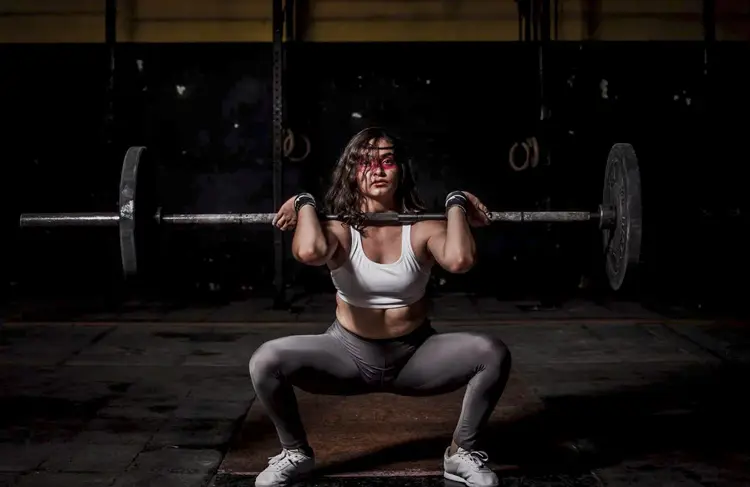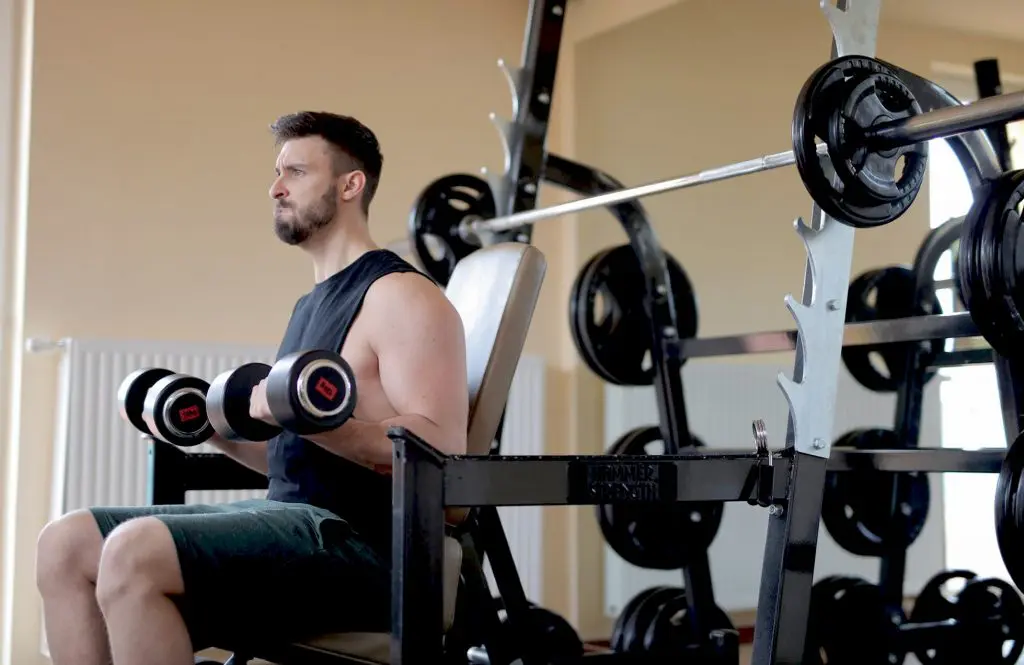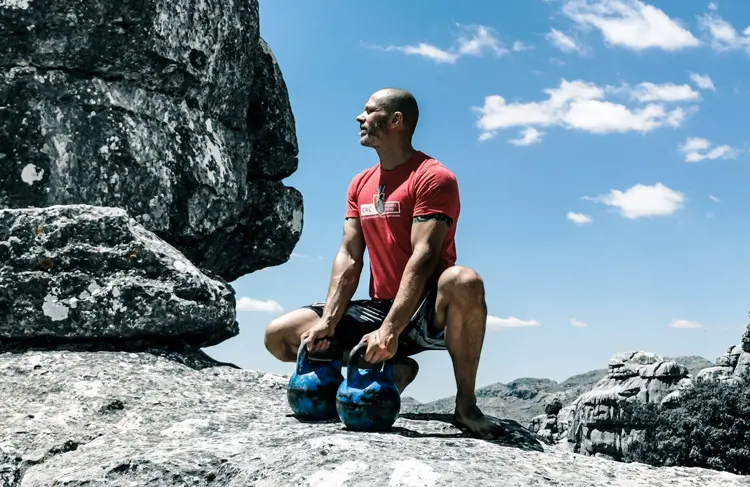There is nothing quite like a workout to blow away the cobwebs and make you feel good. It also helps lower your stress levels and boosts self-esteem. Exercise produces chemicals called endorphins, which are chemically similar to morphine. Athletes call these feelings of euphoria the runner’s high, but it’s not just runners who get a buzz from their workouts; gym-goers do too.
Unfortunately, because of the recent outbreak and prevalence of the coronavirus, also known as COVID-19, some gyms are shutting their doors to prevent the spread of this disease. Exercisers are also avoiding gyms as the CDC recommends social distancing as a way to avoid contracting it (1).
Does this mean you have to give up exercise for the foreseeable future? Absolutely not! However, you may need to take some precautions and make some changes to your workout to keep fit and healthy during the coming weeks. Whether you continue going to the gym or choose alternative forms of exercise, we’ve got the coronavirus workout advice you need!
Best Advice For Gym Goers
Gyms are high-risk areas for contracting and spreading coronavirus. Over the course of an average day, dozens if not hundreds of people come and go, and are often in very close proximity. Those users share workout equipment and may even come into contact with one another. This is the ideal environment for spreading any disease, and that includes COVID-19.
If your gym stays open, and you choose to attend, you should be aware that there is a risk of infection. However, there are plenty of things you can do to keep this risk to a minimum.
We’ve taken the advice of both the Centers for Disease Control (CDC) and the World Health Organization (WHO) into account to create these coronavirus guidelines for gym goers (2 & 3).
Wash your hands frequently
One of the easiest ways to contract any disease is to touch an infected surface or person and then touch your own face – something that most people do hundreds of times per day without realizing it. Washing your hands breaks this chain.
Wash your hands with hot water and antibacterial soap when you arrive at the gym and BEFORE starting your workout.
Don’t touch your face
Sweating heavily? Good for you! But don’t wipe your face with your hands. Instead, use a towel and avoid touching your face with your bare skin. This will be hard because it’s something we all do unconsciously.
Why not reinforce this new habit by punishing yourself with ten push-ups whenever you catch yourself doing it!
Use hand sanitizer between exercises
Hand sanitizers contain alcohol and other germ-killing ingredients. They are usually easy to use gels. Apply a thin layer before starting a new exercise. Thanks to the high alcohol content, they dry quickly and shouldn’t leave you with sweaty hands.
Gyms should supply hand sanitizer but, if yours doesn’t, carry a bottle with you and use it often.
Forget the weight training gloves
The gloves that protect your hands from calluses could also harbor and become a breeding ground for germs. Wearing gloves makes it much harder to sanitize your hands too. Leave your weight training gloves at home. A few calluses are preferable to being ill.
Use a towel on all benches and machines
We know that COVID-19 can be spread by water droplets in the air – such as from a cough or sneeze – so it stands to reason that it could also be spread via contact with sweat. Protect yourself and your fellow gym-goers by sitting or lying on a gym towel and not directly on the upholstery.
Also, place your towel on any gym mats you use.
Consider using antibacterial wipes
As an added precaution, why not wipe down any gym equipment you use with an antibacterial towelette? Keep a pack in your gym bag.
Cover your nose and mouth if you sneeze or cough
Everyone coughs and sneezes from time to time. This doesn’t mean you have coronavirus, but it’s still sensible and polite to cover your nose and mouth if you have to do it at the gym. Cough/sneeze into a tissue and then toss it in the trash. Keep a pack of tissues with you at all times for this purpose. Wash or sanitise your hands immediately afterward to avoid accidentally spreading any germs. Also, for the sake of your fellow gym users, turn your face away from those around you. If you get caught without a tissue, cough/sneeze into your sleeve rather than into your hands.
Do not use the communal water fountain
This is a no-brainer! Bring your own water from home, and don’t share drink bottles.
Think twice about asking for a spot
Asking for and providing a spot brings you into close proximity with other gym users, increasing the risks of transmission. Ask yourself if getting an extra rep is really worth becoming ill. Instead of getting a spot, why not use a training system like drop sets that you can do without help. You could even do a couple of cheat reps.
Keep a safe distance from other exercisers
The CDC recommends staying two meters away from other people to avoid accidental contact and transmission. Given you’ll be breathing hard during your workout, we recommend you increase this distance to three meters or about ten feet.
This may mean leaving treadmills empty or moving your bench and dumbbells to a quieter corner of the gym, but these are small sacrifices that could help keep you safe.
Go to the gym when it’s quiet
Large gatherings in confined spaces are a leading cause of disease transmission. That’s why so many sporting events, concerts, festivals, and shows are being canceled all over the world.
If you can, go to the gym when you know it will be quietest. Ask the staff at the gym what their off-peak hours are.
Skip the communal areas
Saunas, steam rooms, plunge pools, juice bars, changing rooms, and any other communal area is best avoided until coronavirus is under control. Because of moisture, heat, high foot traffic, and a host of other reasons, these places are potential breeding grounds for germs and viruses.
Go to the gym, train, and go home. This will reduce your potential for infection.
Stay home if you have symptoms
The symptoms of COVID-19 are high fever, a persistent cough, shortness of breath, and muscle aches. If you experience any of these, you should avoid the gym and seek medical advice. If you have been in contact with anyone who has these symptoms or has been diagnosed with coronavirus, you should also stay home.
You may be asymptomatic, but that doesn’t mean you can’t infect other people. In this instance, NOT sharing is caring!
Remind your gym of their hygiene obligations
To prevent the spread of coronavirus, gyms MUST be extra vigilant and do their utmost to keep their facilities clean and safe. That includes providing hand sanitizer and antibacterial sprays for the equipment, as well as increasing the amount of cleaning done. If your gym is not taking the appropriate precautions to keep you safe, it may be time to find somewhere else to train.
Please remember that just because YOU follow these guidelines does not mean that other people will. Because of this, there is still a risk that you could contract COVID-19 at the gym, even if you take all the recommended precautions. For some exercisers, this may mean skipping the gym and working out elsewhere is preferable.
Workout ideas for who want to avoid the gym
Want to skip the gym during this worrying time? No problem. There are lots of ways you can maintain your fitness, stay lean, and even build muscle while maintaining social distancing. Here are just a few of our favorite non-gym training methods.
Do bodyweight exercises
A lot of exercisers think that bodyweight exercises are only suitable for beginners. Not true! Providing you crank out enough reps, only take short breaks between sets, and choose the more advanced versions of your chosen exercises, they are useful for more advanced trainers too. Push-ups, pull-ups, single-leg squats, handstand push-ups, body rows, planks, hanging leg raises – each one of these will serve you well if you want to work out at home and don’t have any exercise equipment.
Use a suspension trainer
Suspension trainers like gymnastic rings and TRXs allow you to work virtually every muscle in your body using nothing more than your bodyweight. By lengthening or shortening the straps and changing the angle of your body, you can create an entire library of exercises that will help you maintain or even build muscle. Suspension trainers also make regular bodyweight exercises such as push-ups and Bulgarian split squats much more challenging.
Use resistance bands
When it comes to convenient home workouts, resistance bands are hard to beat. With a good set of bands, you can replicate virtually every exercise you usually do in the gym. Resistance band exercises do feel different from free weight and machine exercises as they get harder as you approach lockout, which is when free weight exercises usually start to feel easier.
However, this is a very small sacrifice to make, and it may actually improve your free weight lifting performance when you get back into the gym. That’s why powerlifters do things like band squats and deadlifts.
Check out these 10 awesome resistance bands reviewed!
Lift odd objects
Old-school strongmen and bodybuilders used to do a lot of odd object lifting. That means they trained with things other than barbells and dumbbells. Barrels, tires, rocks, sandbags, water jugs, hay bales, logs – if it’s heavy, it can be used for strength training. Take a look in your yard or garage and see what you could use to stay strong.
CrossFit
A lot of CrossFit workouts involve going to a CrossFit gym, known as a box, and using equipment. However, several great CrossFit workouts use nothing more than your bodyweight. Most of these workouts are good for endurance, conditioning, fitness, and fat loss but, if you are new to this kind of training, you may also find them useful for maintaining and building muscle. Here are ten of the best bodyweight-only CrossFit workouts.
Follow a workout video
Going to the gym makes working out pretty simple. Everything you need is right there in front of you. While you SHOULD follow a workout program, even if you just move from one exercise to the next, you’ll still achieve some benefits.
Exercising at home isn’t so easy, and you may need some extra guidance and instruction. The good news is that there are thousands of free workout videos to follow on YouTube. Here are nine that I made a few years ago, most of which require little or no exercise equipment.
Exercise outdoors
With social distancing being the watchword for avoiding coronavirus, exercising outdoors has never been such a good option.
There are lots of ways you can take your workout outdoors, including:
- Running
- Walking
- Rucking (hiking with a backpack)
- Bodyweight circuits
- High-intensity interval training, such as stair running or sprints
- Cycling
- Paddleboarding and kayaking
- Open water swimming
- Parkour
- Fitness trails (practice good hygiene, as described above)
It’s unlikely that you’ll be able to replicate your regular gym workouts outdoors. Still, at least you’ll be able to do something that will do your body good while keeping your risk on infection to a minimum.
FAQs
Here are a few FAQs to ensure you have as much information about COVID-19 and exercise as possible. If you have more, you should check out the WHO and CDC who have very comprehensive webpages that contain everything you need to know about dealing with the current health situation.
Should I wear a face mask to the gym?
According to the WHO and CDC, wearing a face mask is unnecessary. The virus is transmitted more by touch than inhaling anything harmful. Touching an infected surface or person and then touching your face is the most likely cause of infection. A mask will only protect you if someone sneezes or coughs right next to you. Providing you are practicing social distancing, masks are unnecessary.
Also, non-infected people using (and even stockpiling) masks means there are less available for the emergency cervices who ARE in much closer proximity to infected people 24/7. You should only wear a mask if you are infected, and then you wouldn’t be at the gym anyway!
Will taking vitamin C/echinacea/drinking vodka/garlic, etc. protect me from coronavirus?
If any of these readily available remedies for coronavirus actually worked, it would not be the serious health risk is clearly is! There is currently no vaccine for this virus and avoidance by social distancing and good hygiene are your best forms of defence. Keeping your immune system in good shape by eating healthily is never a bad idea, but things like vitamins and minerals are not, sadly, miracle cures.
How long should I stay away from the gym if I contract COVID-19?
Currently, infected people are being asked to self-isolate for 14 days if they have contracted coronavirus, but you should seek medical advice because this may change depending on the latest WHO and CDC research. Just because you feel okay does not necessarily mean you are not still infected. Going to the gym too soon could mean spreading the virus.
Can't I just "sweat it out" like a common cold?
Because coronavirus affects your respiratory system, potentially impairing your ability to breathe, if you are infected, intense exercise could make things much worse. Exercise if you are healthy, taking all the proper precautions to prevent infection. But, if you are unwell, you should rest up and let your body heal. Do not try and sweat it out, either by exercising or with saunas. If you already have a high temperature, this could be very dangerous.
The wrap-up
COVID-19 is undoubtedly a risk to public health, but that doesn’t mean you have to give up working out. In areas where the risk and incidences are low, you may be able to continue working out at the gym as usual, albeit by taking the necessary precautions. You could also choose to skip the gym and work out alone to reduce your risk of infection.
It’s important to remember that being fit and healthy will strengthen your immune system, so regular exercise and eating healthily are more crucial than ever. But, if you have any symptoms or are worried that you may have contracted the virus, your first port of call should be a doctor.
Stay healthy!
References:
1) Centers for Disease Control and Prevention:Implementation of Mitigation Strategies for Communities with Local COVID-19 Transmission https://www.cdc.gov/coronavirus/2019-ncov/downloads/community-mitigation-strategy.pdf
2) Centers for Disease Control and Prevention:Coronavirus Disease 2019 (COVID-19) https://www.cdc.gov/coronavirus/2019-ncov/index.html
3) World Health Organization:Coronavirus disease (COVID-19) advice for the public https://www.who.int/emergencies/diseases/novel-coronavirus-2019/advice-for-public
Tip: If you're signed in to Google, tap Follow.


